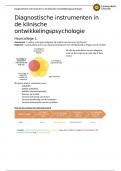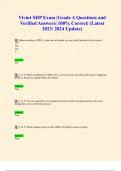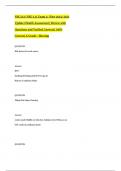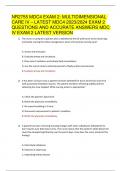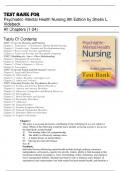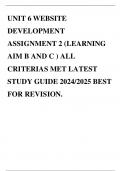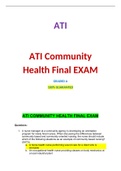Lecture notes
College aantekeningen Diagnostische instrumenten in de KLOP () Handboek psychodiagnostiek voor de hulpverlening aan kinderen
- Module
- Institution
College aantekeningen van het vak diagnostische instrumenten in de klinische ontwikkelingspsychologie. Dit is inclusief extra uitleg en informatie wanneer er naar het boek verwezen werd in college 2.
[Show more]
